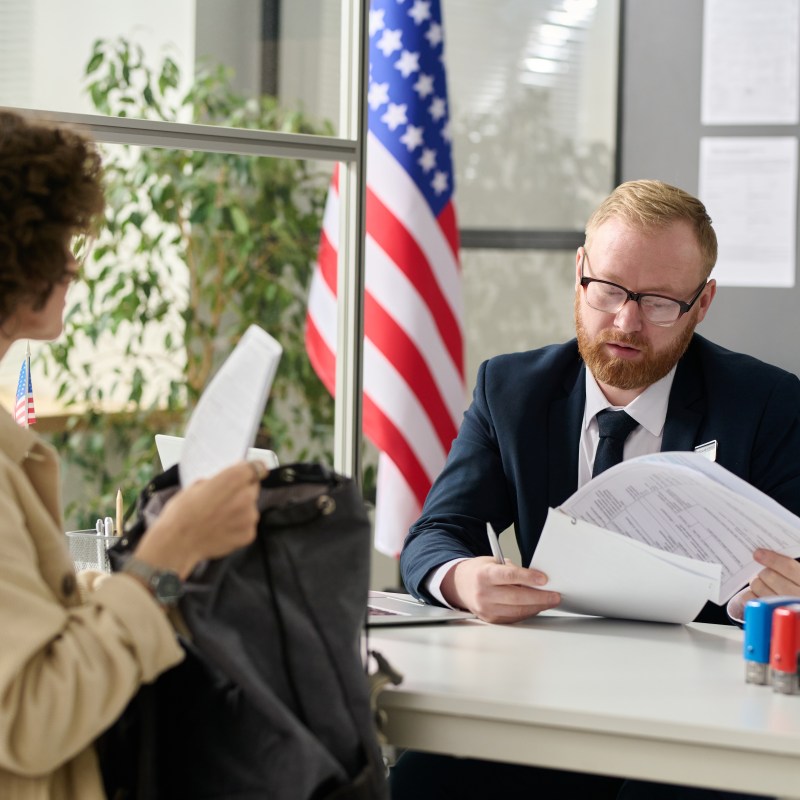
Nobody wants to face an emergency abroad.
Videos by TravelAwaits
I’ve been in more than a few hairy situations outside of the US, ranging from hospital visits in Costa Rica to being a passenger in a car that hit a cow in rural India.
Emergencies come in all shapes and sizes.
But do you know how to get the help you need from an American embassy should worst come to worst?
While earning my degree in Global Studies, I learned how to find the nearest US embassy or consulate… along with why I might need to seek one out.
This type of information is handy when your passport is stolen or lost while abroad—but that’s just the tip of the iceberg. Knowing where to find the nearest US embassy or consulate is also important for a range of other considerations, from navigating natural disasters to getting hitched.
Here are the seven reasons you might need an embassy while abroad, starting with nonchalant examples before moving into emergency territory.
The basics
Let’s quickly cover what embassies and consulates are. (You can find the full list of locations here.)
An embassy is located in the capital of another country and serves as the main location for international relations between the US and the host nation. Almost all countries have one major US embassy. This is where diplomats and personnel do their thing.
A consulate, on the other hand, is established outside the capital city. For the average traveler, a consulate is just as helpful and effective in meeting their needs as an embassy.
But keep in mind that embassies and consulates are staffed according to normal workdays. Though security and nighttime staff are available around the clock, clerical and administrative services need to be handled on a nine-to-five basis.
Now, let’s dig into the seven reasons you might need an embassy while abroad.
Reason #1: General advice
US taxpayers fund embassies—so think of them like a public service, just like your local police. You’re allowed to arrive without a reservation, ask questions, and seek advice.
It’s really that simple. Americans can show up at an embassy or consulate to ask for general advice about their destination. Most often, these questions relate to local laws and customs.
But don’t be afraid to reach out with other topics. For example, an embassy or consulate visit can help travelers who are interested in opening a business abroad learn more about regulations, laws, and more. Staff can also point you in the right direction if you want to learn even more.
Reason #2: Marriage
If you’re planning to marry a non-American citizen while abroad, then the US embassy can help you meet legal requirements. Staff are available to educate you on local marriage requirements and procedures, along with how to document your union for proof of marriage in the United States.
Reason #3: Visa & travel documents
If you need assistance with any visa, travel permits, or travel documents, the US embassy is available to support you. Staff can help you understand what documents you need to finish a visa application, along with how to meet local requirements.
For example, if you’re looking to extend a tourist visa in a place like Albania, the US embassy can help you make a list of the necessary documentation, along with where to find additional services like translation. In some cases, you might be required to send applications to an embassy for final approval.
Reason #4: Replacing lost or stolen passports
In case you don’t know, the US embassy is where you should head if your passport is lost or stolen abroad. (Or a consulate, if that’s closer.) Staff can help you find a replacement immediately or provide you with a temporary travel passport so that you can order a new one when you’re back home.
Reason #5: Reporting crime
If you’re the victim of a crime while traveling internationally, it’s highly suggested that you contact the embassy. That’s true even for minor cases of theft, as these reports help local and embassy authorities document and track crime abroad.
Aside from data collection, embassy staff can also walk you through what comes next. They can help you communicate with local police, file a report, obtain medical care if needed, help you contact friends and family, and provide you with the necessary resources for additional assistance.
I think it’s also worth pointing out that the embassy provides a psychologically ‘safe’ place for those who have been victimized.
Reason #6: Emergency relief
When disaster strikes, the US embassy is the first line of assistance for Americans abroad. Whether facing a domestic terror attack or a worldwide pandemic, the US embassy will work overtime to get citizens home safely.
Similarly, even if you aren’t the victim of an emergency or crime but are simply injured abroad, the US embassy can help you obtain medical treatment. In certain cases, the embassy will even provide financial assistance to help during emergencies.
In short: If you’re panicking for any reason, call the embassy.
Reason #7: Death reports
When the worst happens abroad, the US embassy is there to provide documentation for the deaths of US citizens, provide assistance for funeral arrangements and repatriation, and even reach out to next of kin and family.
In terms of reasons you might need an embassy while abroad, this is the most extreme. But I like to remind people that embassy staff usually have experience dealing with Americans in crisis, so don’t feel shy about reaching out for help.
